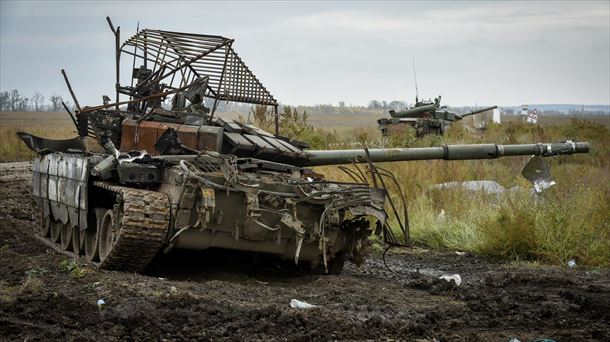In the battle between Hezbollah and Israel, the UN headquarters is located between the fronts. What is the situation after the attack?
The international UNIFIL peacekeeping force, consisting of forty countries, has been stationed in Lebanon since 1978. In November 2011, the “Krone” accompanied the start of the red-white-red mission in the Middle East. “Start in the unknown,” was the headline at the time.
Eight Austrian soldiers were injured in a rocket attack
An uncertainty that today, thirteen years later, still hangs over the UN camp Naqura like a sword of Damocles. In the midst of the battle between the pro-Iranian Hezbollah militia and Israel, the main base, which currently has 10,000 soldiers, has been repeatedly targeted by war opponents. As reported, eight Austrian peacekeepers were fortunately only slightly injured by a Hezbollah missile at the end of October.
Considering the situation in the Lebanese cauldron, Kurt Seinitz, foreign policy expert from “Krone” analyzed: “The UNIFIL force in southern Lebanon watched as Hezbollah established itself there. The eyes are focused on the Israeli border. UNIFIL has thus become a hostage of Hamas or a protective force for Hezbollah.”
An editorial from “Kurier” says “Last chance for UNIFIL” and that an Austrian withdrawal would result in a further loss of importance after the “shame of the Golan” (Austria withdrew its troops in 2013 after 40 years). As flattering as it is that the work of our military is in first place for the first time with 67 percent according to the latest confidence index, the foreign deployment is still a disaster in this powder keg.
Hezbollah, which was banned in Austria, had 150,000 rockets. 14,000 of them were shot at in Israel. According to Israeli estimates, the “arsenal of deaths” has now been reduced to a third.
That UNIFIL forces, despite their manpower, are still in a rather hopeless position was also evident from the most recent local “Krone” inspection with the Red Cross at what is probably the most dangerous border in the world. Because this area in the south was firmly in the hands of Hezbollah, as hundreds of support flags demonstrated. In addition, a Hezbollah stronghold has developed around the historically important city of Baalbek in eastern Lebanon.
The Israeli Air Force fired on the region a few days ago. Nevertheless, there is cautious optimism about efforts to broker a ceasefire between Israel and Hezbollah. A White House Middle East coordinator must act as a mediator to find a way out of the war.
The commander of the Austrian contingent in Lebanon, Lieutenant Colonel Peter Ertl, has been in the operations room for eighteen months. The Graz resident and father of two children is aware of the difficult situation between the fronts.
In view of the shelling of the UNIFIL camp by Hezbollah, he thanks all soldiers “for their extraordinary efforts and comradely cooperation.” However, since the most recent attack, the resulting self-protection measures have been tightened: wearing personal protective equipment – when outside buildings – remains mandatory at Camp Naqura!
Lieutenant Colonel Ertl is preparing for the rotation: at the end of November, 90 new soldiers will arrive in the area of operations to replace those traveling home. In total, a handful of soldiers were detached after the camp was shelled. Just as few people have canceled their voluntary mission in Lebanon.
Colonel Michael Bauer summarized: “The UN is not the target of the aggressive actions of the parties to the conflict. The risk of collateral damage is greatest. About 160 soldiers, including 14 women, will also represent Austria in Lebanon.”
Source: Krone
I am Wallace Jones, an experienced journalist. I specialize in writing for the world section of Today Times Live. With over a decade of experience, I have developed an eye for detail when it comes to reporting on local and global stories. My passion lies in uncovering the truth through my investigative skills and creating thought-provoking content that resonates with readers worldwide.



